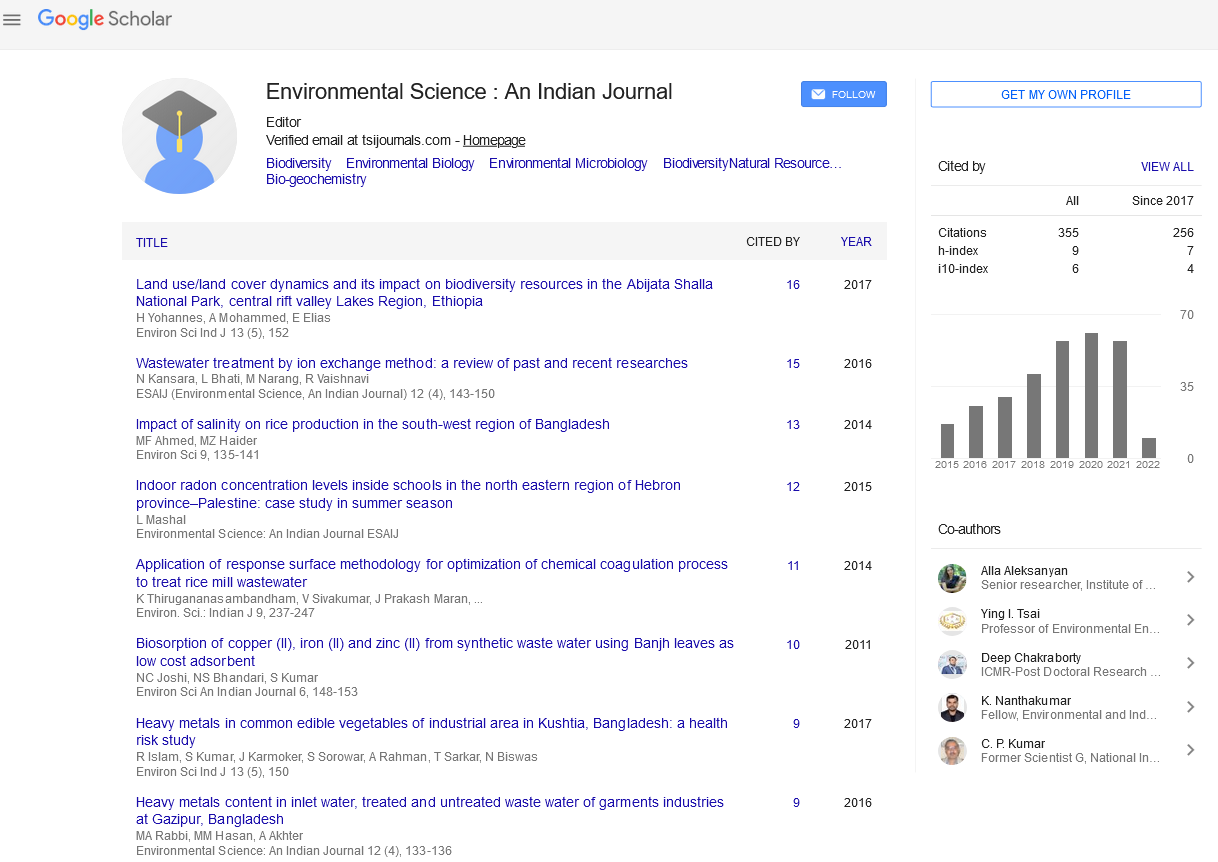Abstract
Impact of COVID-19 pandemic on waste management companies in Pakistan
Author(s): Ayesha Ameen and Zain AbbasUncertainties in market have been observed due to COVID-19, 20% of the market has been dropped down as compared to the market at its peak before COVID-19. Regular waste collection services are the key to maintain urban lives. COVID-19 current pandemic have bring many challenges related to Municipal solid waste Practices and procedure. It brings many thoughts about the dumping site safety, Compost Manufacturing plant and Labor safety. Currently due to lockdown, the worst effects have been observed in the dumping site of different cities of Pakistan. Waste could not be sorted or bring to the composting plant for manufacturing and processing. The scientific study revealed that virus is attached on the surfaces for 2 hours to 9 days [1]. But there could be a threat of spread of this virus to by dumping sites of waste because there is a lot of Municipal solid waste collected from streets, roads of city and bring to dumping site directly without sorting and sterilization. The waste could be collected from the regions where patients of corona virus are present. Currently, these dumping sites are not following any safety measures to ensure the stop of COVID-19 virus transmission to nearby villages. Secondly, Waste collection workers are at a great risk of COVID-19, in Pakistan. Workers lack awareness regarding COVID-19 severity. It has been observed that 80-85% of the waste management companies are likely to get impacted soon. Waste is the last thing to think about when economy dropdown but it is becoming the major cause to spread COVID-19 virus. Many composting plants are not functional after COVID-19 pandemic outbreak. It increases the amount of solid waste on daily basis at dumping sites and increasing the risks of COVID-19 in workers and nearby population. Recently government of Pakistan has announced that lockdown will extend till 15th July 2020. During this lockdown, composting plants are not operational and large amount of collected MSW is causing many health issues. It is effecting on the health of nearby village population until the collected waste is processed to make compost. Introduction: Waste collection Workers hygiene is of primary importance. It has become obvious that the new corona virus is not only a major health risk but a major threat to the livelihoods of worker. Waste collection and manufacturing companies has to provide proper safety measurements to their employees. The preferred method is to provide proper mask, gloves and hand sanitization system with an alcohol-based hand rub for 20â??30 seconds using the appropriate technique, after any contact with a patient with suspected or confirmed COVID-19 infection or its waste, gloves should be wear before and after collection of waste and gathering waste in dumping sites [1]. Hands should be properly washed after exposure to any type of waste. Properly disinfect the vehicles destined for waste collection. Vacuum cleaner should be used for appropriate disinfection. Social distance practice must be follow with minimum contact with residents. Diagnostic and treatment facility must be provided to the workers at high risk of COVID-19 [2]. Aim: The objective of this study is to emphasis waste utilization companies to start decomposition process as soon as possible by keeping proper safety measurements. Waste in bins and streets or LWMC large bins should be disinfect by using hydrogen peroxide and appropriate amount of bleach and alcohol by spraying on waste. This MSW must be utilized and recycle to make compost by adding sufficient amount of active microbial inoculums. These inoculums can increase the efficiency and decomposition of composting process. Waste that could be toxic such as masks, tissue papers collected from streets must be incinerated after sterilization with bleach. Dumping site safety measurement strategies should be made to avoid any further spread of virus from this MSW waste in nearby populated areas. New dumping sites far from populated areas must be design. Municipal solid waste could be hazardous in this pandemic and cause infection if it does not sterilize properly. Compost manufacturing plants in different cities of Pakistan have to start decomposition process of organic waste after sterilization.

